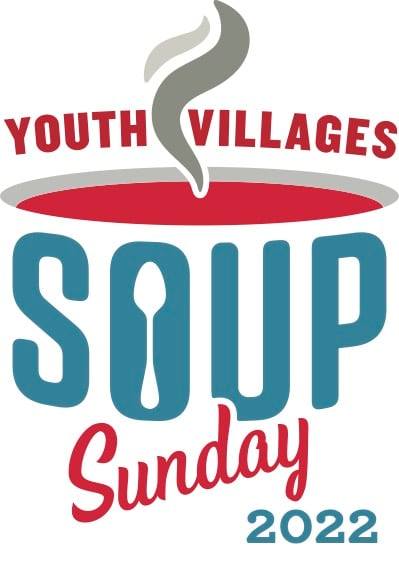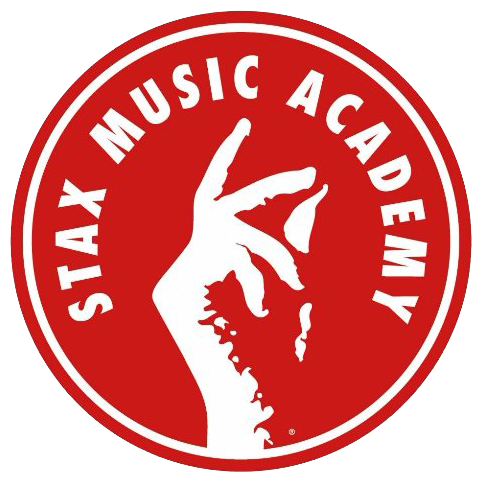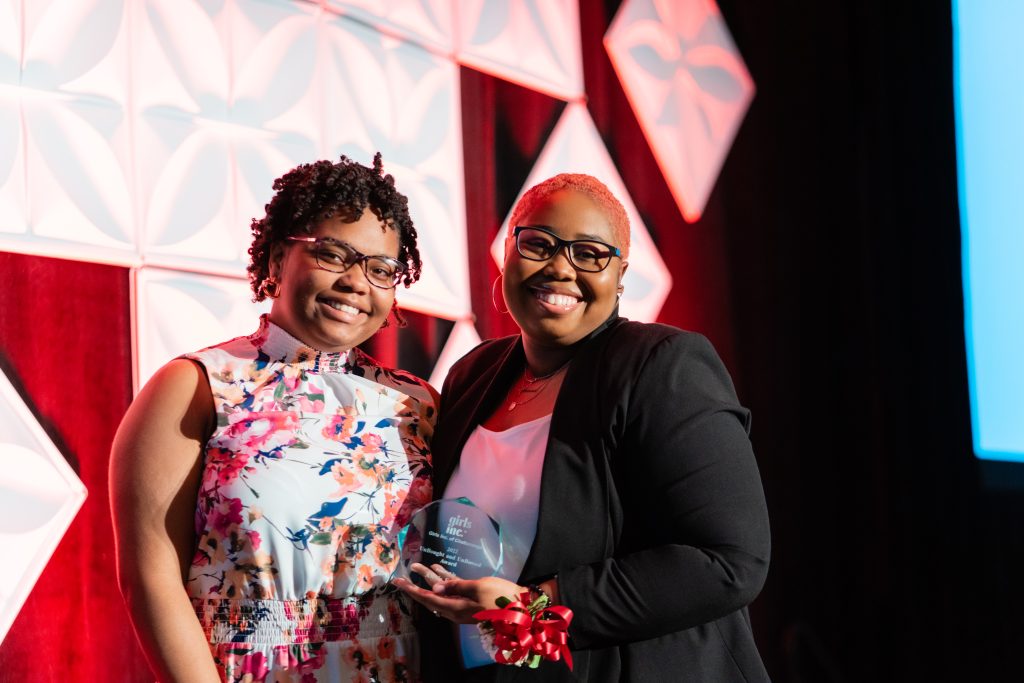Key Takeaways
- The BlueCross BlueShield of Tennessee Community Trust donated a total of $21,200 to the 4 organizations mentioned in this story.
- The Community Trust supports health-focused nonprofits that promote the wellbeing of all Tennesseans.
- In total, the Community Trust donated $517,000 to Tennessee nonprofits in 2022.
What were you worried about when you turned 18?
Getting a job, going to college, finding an apartment — all are common concerns for young adults. But for more than 20,000 kids in America, turning 18 brings a much bigger concern: aging out of foster care without a family to support them.
“There are thousands of kids who turn 18 every year in foster care who aren’t really prepared for life,” says Jevonte C. Porter, corporate relations manager for Youth Villages of West Tennessee.
The statistics bear that out. Youth coming out of foster care are less likely than their peers to graduate high school and college. By age 26:
- 80% of youth aging out of foster care earn a high school degree or GED compared to 94% of their peers, and
- Only 4% earn a 4-year college degree compared to 36% of their peers.
“At Youth Villages, we believe we have a responsibility to do better for those kids,” says Jevonte. “We’re committed to reaching every young person in foster care and giving them the resources they need to thrive in adulthood.”
Reaching kids in the community
Since 1986, Youth Villages has done that for more than 20,000 young people across the country. As a nationally recognized leader in the field, they offer care for emotional, mental and behavioral issues in 23 states and 100-plus locations.
Through their LifeSet program, Youth Villages serves kids with challenges including:
- Addiction
- Poor anger management
- Trauma from abandonment, neglect and abuse
- Conflicts with parents at home
- Depression, anxiety and suicidal thoughts
- Issues with juvenile court
LifeSet is intensive, community-based and customized. Specialists text, email and call youth regularly, and they meet face-to-face weekly. LifeSet specialists help stabilize even the toughest situations so young people can build healthy relationships and find safe housing, education and/or employment.
“Our LifeSet program is intentional and effective, and it produces promising results,” says Jevonte. “We believe every child should have the opportunity to reach their full dreams, and for kids in foster care, this is step one of that process.”
To date, TeamBlue volunteers have:
- Sent 120 graduation cards to Youth Villages’ graduating high school and college students
- Spent 187 hours virtually volunteering with Youth Villages, which often includes playing bingo, Catchphrase, Wheel of Fortune, Jeopardy and Pictionary with program participants
Keeping care in-home when they can
In the beginning, Youth Villages focused on foster care because people believed that was the solution.
“At first, we thought children were best served outside of the home,” says Jevonte. “Today, we — and the rest of the behavioral health world — know that studies show children have the best results when they can grow up safely, in their own homes, without the trauma of family separation. So that’s how our model works. We serve 32,000 families each year, as well as the kids who are already in foster care.”
In the home, Youth Villages offers family-first support through two treatment programs:
- Multisystemic Therapy, which helps kids ages 12-17 who display serious antisocial behaviors and are at risk of placement outside their home.
- Intercept, which allows specialists to provide systemic family therapy to preserve family bonds and increase problem-solving skills for everyone in the family.
Intercept is an alternative to placing a child in foster care, treatment, detention centers or other juvenile facilities. And by all accounts, it’s working.
“Our Intercept program is one of only 12 models to receive the highest rating from the Title IV-E Prevention Services Clearinghouse,” says Jevonte. “That rating is crucial because it allows states to receive federal funding for our program, which means more families are restored and less foster care is needed.”
Souping up their fundraising efforts
 Still, serious fundraising is necessary for Youth Villages to be able to offer their services to every teen in the country who needs them. Enter Soup Sunday. Youth Villages has been holding the event for more than 30 years, and it’s become a hometown favorite.
Still, serious fundraising is necessary for Youth Villages to be able to offer their services to every teen in the country who needs them. Enter Soup Sunday. Youth Villages has been holding the event for more than 30 years, and it’s become a hometown favorite.
“Soup Sunday is one of the most popular events in Memphis,” says Jevonte. “It gives people in the MidSouth a chance to enjoy soup, bread and delicacies from dozens of restaurants and caterers, all while helping troubled children right here at home.”
Over 33 years, Soup Sunday has raised more than $1 million for Youth Villages. In 2022, the BlueCross Community Trust provided a $2,500 grant to support the event.
While Jevonte knows a lot of people who come to Soup Sunday aren’t aware of the all-encompassing programs Youth Villages provides, he’s grateful for partners who have a real understanding of what they do.
“Having organizations like BlueCross BlueShield of Tennessee be truly invested in the work we do means the world,” says Jevonte. “We are working to bridge the gap and make a difference in the lives of so many young people in our community. It takes a village, and BlueCross is part of our village.”
In order to be eligible for grants from the BlueCross Community Trust, nonprofits must focus on:
- Charitable clinics
- Chronic disease management
- Diversity and inclusion
- Youth development
Here are three more 2022 grantees helping guide and inspire Tennessee youth.
Changing foster care, one house at a time
Isaiah 117 House

“I’ve never had any shoes this nice. I really don’t deserve them.”
When a boy entering foster care said that to a program coordinator, she asked why.
The boy said, “I’ve done a lot of bad things.”
At that moment, the coordinator was able to offer the boy something he’d never been given before: dignity.
“I assured him that, inside our white house with the red door, it didn’t matter,” she said. “He would be shown love and grace.”
That day, the boy left with a bag of new clothes, new shoes on his feet and his head held high.
Stories like that are why Isaiah 117 House exists, says founder and director Ronda Paulson.
“When children are removed from their homes due to welfare concerns, they’re usually brought to the Department of Children‘s Services (DCS) offices to await placement,” says Ronda. “The wait can last days. These children often have nothing with them. They’re scared, lonely and hungry. I started Isaiah 117 House to give these kids a safe, clean, comfortable place to wait, where they’re surrounded by friendly, loving volunteers.”
In 2018, Isaiah 117 House was one home in Carter County, Tennessee. Today, it consists of 33 locations across six states. Volunteers have spent 20,000 hours serving 2,500 “red-door guests” to date. Here in Tennessee, support from local organizations is what’s made that possible.
“The $7,700 donation from the BlueCross BlueShield of Tennessee Community Trust was critical to our Cocke County location ,” says Ronda. “It’s currently our only location in that region, despite the fact that the need there is great. These funds have been essential to cover operating costs, meals and clothing for our kids.”
In addition to funds from the Community Trust, many BlueCross employees have donated to the cause through the Benevity online giving platform. Those funds have benefited 10 locations that are either actively serving children in their communities or under construction.
“The generosity of BlueCross is just one example of the fact that, while the need is great, God is greater,” says Ronda. “God’s people are giving of their time, resources, energy, and love to make sure that the children of their community know they are not alone, and that they have never been forgotten.”
Kids create virtual concert series celebrating Black music
Soulsville / Stax Music Academy
 A bigger vocabulary. Better test scores. Enhanced critical thinking.
A bigger vocabulary. Better test scores. Enhanced critical thinking.
What do these have in common? Kids are more likely to have all of them if they’re exposed to music.
“Music is foundational here in Memphis,” says Tim Sampson, communications director for the Soulsville Foundation. “We’ve seen, time and again, how transformative music can be for kids, and how much it can teach them about their culture, their history and themselves.”
The latest case in point: a virtual concert series that explored Black American music. In Soul of America: An Evolution of Black Music, students at Stax Music Academy (SMA) created a series of videos exploring the culture that gave birth to Black music. They filmed at special locations like Beale Street across Memphis and the South, and they learned about everyone from B.B. King and the Pointer Sisters to Tina Turner and Beyonce. SMA even created companion study guides for students from elementary through college so everyone could take part in the discussion.
“It was incredibly special for our kids to not only create these videos, but also to be able to share them with educators, students and schools,” says Tim.
Judging by the metrics, people agreed. Over the past two years, SMA’s virtual programming was viewed by more than 210,000 people.
“Without support from organizations like BlueCross, none of this would be possible,” says Tim. In 2022, the BlueCross Community Trust donated $5,000 to the Soulsville endeavor.
“BlueCross enabled us to offer this program for free, and to share it throughout the world. That’s important for us, and it’s important for Memphis.”
UnBought and UnBossed luncheon
Girls Inc. of Chattanooga

Strong, smart and bold — these are qualities every parent would like to foster in their kids. But how do you actually do that day to day? Girls Inc. of Chattanooga (GIC) has many ways.
“All of our programming supports our Girls’ Bill of Rights,” says Taylor Hixson, chief development officer for Girls Inc. of Chattanooga. “That covers everything from helping girls express themselves to resisting gender stereotypes and preparing for economic independence.”
Girls Inc. works toward those goals with creative programming that includes:
- Literacy clubs for kids in elementary and middle school
- Tech clubs which offer hands-on STEM exploration
- Programs that work on intangible skills like character development and conflict resolution
- Courses that teach girls how to lead and advocate for what they believe in
- Guidance for high schoolers on college and career plans
During COVID-19, GIC also established a virtual learning center in partnership with Hamilton County Schools to offer academic and emotional support for online learning. They also continued their signature She Can, She Will program, which teaches high school girls about influential women in their own communities.
“The Annual UnBought and UnBossed Awards are a culmination of the work our girls do studying women’s history and leadership ,” says Taylor. “Each girl selects an honoree who inspires her. Then she researches, creates and delivers a presentation about her mentor at the luncheon.”
Throughout the semester, girls meet with their mentor, attend events together and often develop relationships that continue past the program’s completion.
“Mentorship is one of the many benefits of being a Girls Inc. girl,” says Taylor. “Every year at UnBought and UnBossed, it’s so gratifying to see the connections the girls have made with their mentors.”
Funding for the program comes from many sources, one of which is the BlueCross BlueShield of Tennessee Community Trust. In 2022, the Community Trust donated $6,000 to UnBought and UnBossed.
“We are so grateful for the continued support of BlueCross,” says Taylor, “and so are our strong, smart, bold girls.”

